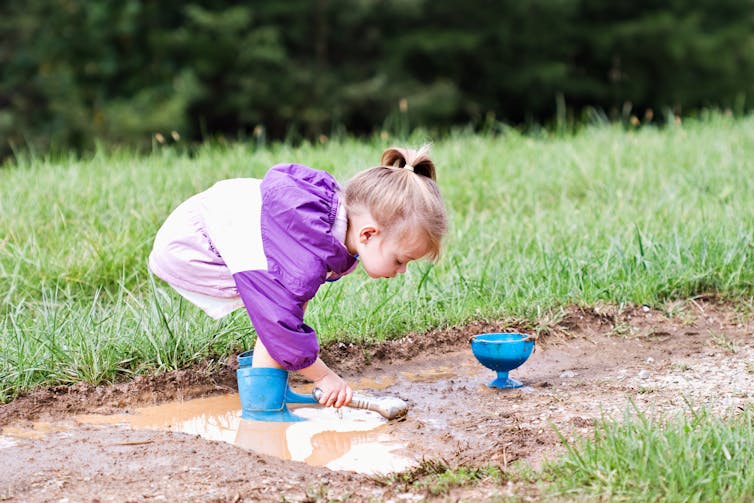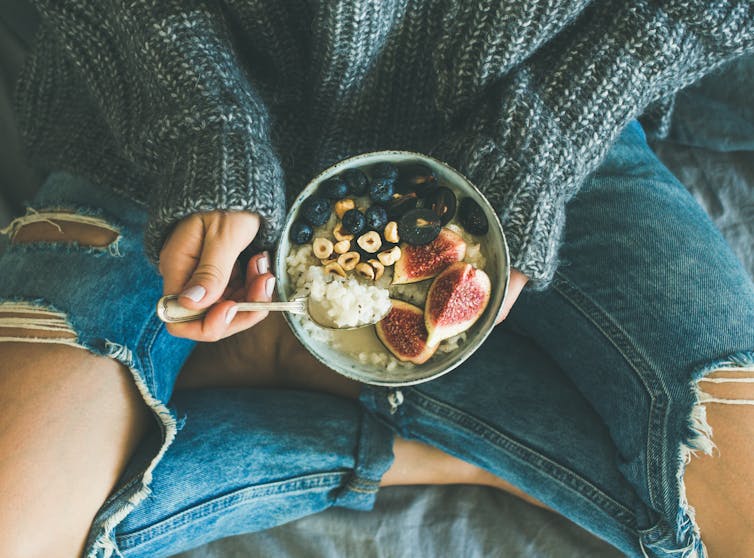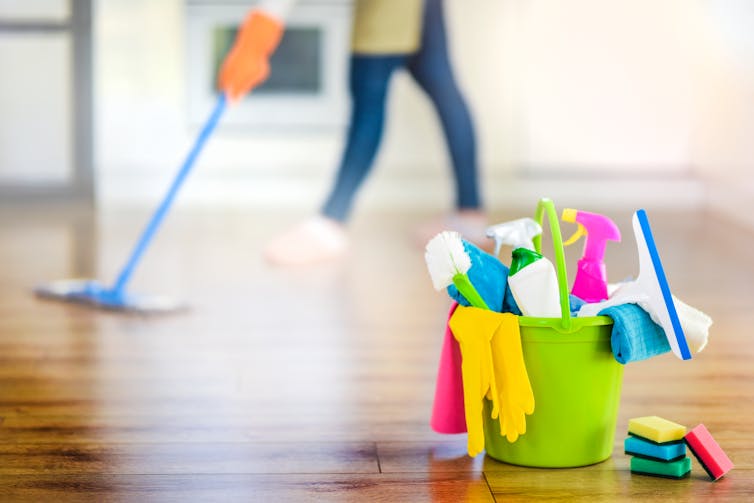No, the extra hygiene precautions we’re taking for COVID-19 won’t weaken our immune systems
During the COVID-19 general we're constantly beingness reminded to practise good hygienics by frequently lavation our men and regularly cleaning the spaces where we live and work.
These practices aim to slay or kill the coronavirus that causes COVID-19, and thereby minimise our risk.
But thither get been some suggestions using hand sanitiser and practising other hygiene measures too often could weaken our immune system, by reducing our body's pic to germs and with it the chance to "train" our immune defences.
The saving tidings is, there's no more tell apart to suggest this leave be the pillow slip.
The 'hygienics hypothesis'
For healthy status function, IT's evidential we'atomic number 75 unprotected to a diverse range of bugs in the environment, known as microbes. Near of these don't make us giddy.
The impression that a squeaking horizontal surface of cleaning and personal hygienics weakens our immune system is a common interpretation of what's named the "hygiene hypothesis".
The hygienics hypothesis is a theory that suggests a boylike tyke's environment can make up "too clean", and they won't be exposed to adequate of these microbes to effectively stimulate their immune system as it develops.
The argument is that this results in increased allergies, asthma attack and certain autoimmune disorders. Simply scientists have refuted this supposition in recent years, as explore has shown there are multiple different reasons for the increased incidence of these conditions.
Significantly, organism as well smudgy doesn't help our immune system either. It generally makes inflammation worsened.

What is the unsusceptible system?
The immune system works to protect our bodies against things that threaten to constitute us sick — from harmful chemicals, to bacteria and viruses, to cancer cells.
It's made upwards of two lines of defence. The kickoff is the "innate" immune system, which responds chop-chop to a range of pathogens to push infection and prevent tissue damage.
Next is the "adaptive" immune system, ready-made up of immune cells that develop a more targeted or specific response to fight soured harsher germs such as viruses. Adaptational immune cells work by recognising small parts of the virus on the right of the infected cell (for example, lung cells), and destroying them.
These cells then become what we outcry "memory cells". The next clock they encounter the same computer virus, they can eliminate it straight away.
This development of the immune organisation starts afterwards birth and declines in eld.
What can damp our immune system?
Some aspects of our modern lifestyle tail end weaken our immune scheme. These include:
- a miss of sleep
- certain medications and the overuse of antibiotics
- low vitamin D levels
- a Western diet rich in processed foods, and reduced consumption of fruits and vegetables
- a lack of natural body process
- accentuat and anxiety.

But there's no scientific evidence to keep going the notion that extra hygiene precautions will weaken our immune system or leave us more susceptible to infection by bacterium or viruses.
Microbes are all over: in everyone's thoughts, on food, and in plants, animals, begrime and piddle. They can be found on nearly every skin-deep, including inside and outside your body.
The hygiene measures recommended during COVID-19 leave help curb the spread of the coronavirus and greatly reduce our risk — but North Korean won't eliminate all microbes from our lives.
Keep information technology clean
Cleaning refers to the removal of microbes, dirt and impurities from surfaces. It doesn't kill microbes, but by removing them, it lowers their numbers and therefore reduces the adventure of spreading infection.
In contrast, disinfecting refers to victimization chemicals, titled disinfectants, to kill microbes on surfaces.
A combining of cleaning and disinfecting is the virtually effective way to eliminate microbes such as coronavirus.

Extra hand hygiene is of course one of the nearly earthshaking contagion control measures.
We've been advised to clean our hands with soap and water for at least 20 seconds. If this is not practical, use deal sanitiser with at least 60% ethanol or 70% isopropanol.
Frequent hand-washing, especially if a sanitiser is old, can break up the natural pelt biome, which can lead to increased skin infections. This can Be managed with the use of moisturisers.
Only the extra hygiene measures during COVID-19 won't weaken our immune systems. On the contrary, they are life-sustaining in controlling the pandemic.
If you'atomic number 75 worried around your immune system, don't stopover washing your hands Oregon keeping your house clean. Importantly, follow a healthy balanced diet, do regular exercise and look after your mental health.
This story was originally published on The Conversation by Favoring Vice-Premier, Research Partnerships, Victoria University,Lecturer; Doctor of Medicine, Victoria University andWellness Policy Lead and Professor in World-wide Public Health at the Reginald Joseph Mitchell Institute, Victoria University
Important image AlexRaths via iStock
https://hellocare.com.au/no-extra-hygiene-precautions-taking-covid-19-wont-weaken-immune-systems/
Source: https://hellocare.com.au/no-extra-hygiene-precautions-taking-covid-19-wont-weaken-immune-systems/
0 Response to "No, the extra hygiene precautions we’re taking for COVID-19 won’t weaken our immune systems"
Post a Comment